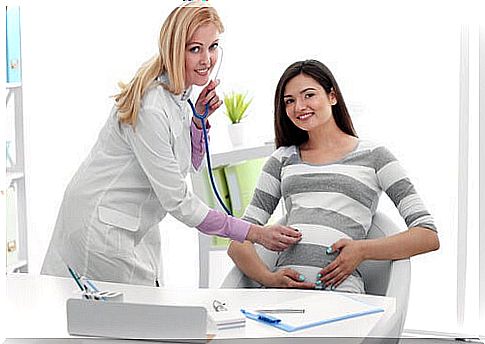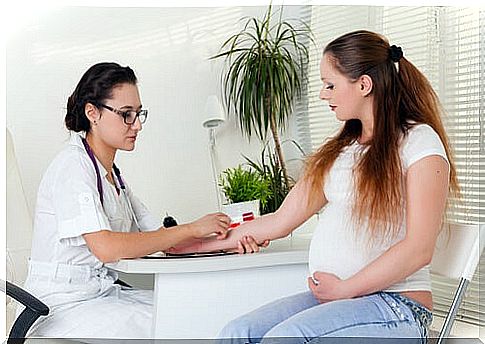When Should You Ask For Maternity Leave At Work?

From the beginning of the expectation, pregnant women who work outside the home ask themselves when it is possible to apply for maternity leave. Given all the typical discomforts of this condition, the ideal would be to be able to go to maternity leave two months before giving birth.
However, today there are many pregnant women who try to work until the last day before giving birth. This is because they want to take advantage of the months off to spend as much time as possible with their newborn baby.
To protect the well-being of both, the nature of the work done by the expectant mother must be considered. Although pregnancy is a normal stage in life and not a disabling disease, certain work requirements can affect it. When doing certain risky activities for work, it is good to ask for maternity leave.
Some jobs involve long hours standing or sitting, lifting heavy objects, a lot of pressure, or frequent body movements. All aspects incompatible with an advanced stage pregnancy. Apart from the ailments caused by weight gain concentrated on the belly as well as general, mental or physical effort can be harmful for the entire gestation.
In this sense, the Spanish Society of Gynecology and Obstetrics has developed a guide. In it, he advises on which week to ask for maternity leave based on the physical commitment required of the pregnant woman from work. On the INPS website, you will also find all the useful information on applying for leave.
Recommendations on when to apply for maternity leave
According to the Spanish Society of Gynecology and Obstetrics, these are the criteria and risks on the basis of which to determine when to apply for maternity leave:
- Stand for a long time. Standing for more than three consecutive hours can result in premature birth and reduced fetal growth. The risk increases if the pregnant woman suffers from varicose veins.
- Lift weights. It is very dangerous in the last stage of pregnancy, considering the pressure this operation exerts on the belly. Plus, lifting weights the wrong way can come with an even greater risk.
- Climb the stairs. It is an activity that, if done frequently, involves a great physical effort that is added to the increase in abdominal weight.

Week calendar and associated risks
These are some of the actions to avoid starting in the weeks mentioned below:
Eighteenth week
- Lift weights over 10 kg, four or more times per shift.
- Bending below the knees more than ten times per hour.
Twenty-second week
- Stand for more than four consecutive hours a day.
Twenty-sixth week
- Bend over between two and nine times per hour.
- Climb stairs four or more times a day
- Lift loads weighing between 5 and 10 kg more than four times per shift.
Thirtieth week
- Remain standing continuously for more than 30 minutes per hour.
Thirty-seventh week
- Stand for less than four hours per day and less than 30 minutes per hour.
- Bend below the knees less than twice an hour.
- Climb stairs less than four times per turn.
- Lifting loads weighing less than 5 kg less than four times a day.
Other work factors that carry risks for pregnancy
In addition to those already mentioned, other factors linked to workloads represent inconveniences in the intermediate and final stages of pregnancy. And they can affect the mother’s decision to apply for maternity leave.
One of them is sitting for a long time. Sitting for a long time and in the same position negatively affects the back, already burdened by the weight gained from pregnancy.
Other aspects to keep in mind when deciding when to apply for maternity leave are:
The tiredness
Pregnancy must be lived in the best possible condition of well-being. An excessive workload does not help. In light of this, we must expect a decrease in workload or assigned tasks, even if this means delegating part of the work to others.

Stress
The intensity and duration of work stress is incompatible with the ideal conditions necessary to carry on a pregnancy. This factor is also influenced by the personality of the pregnant woman. Breathing and relaxation exercises are necessary if you are under severe pressure and stress.
Dangerous work by nature
If the job involves handling hazardous materials or high-risk activities, then it should be stopped for the duration of the pregnancy.
Together with what has been said before, if the woman suffers from any disease, it is necessary to guarantee her the possibility of facing and living this stage of her life without any risk.
Asking for maternity leave during pregnancy must be a decision that has no negative consequences on the health of the mother and baby. It is advisable to consult the doctor, who will monitor the development of the process. You have to decide responsibly and take into account the particularities of the pregnant woman and the type of work she does.









